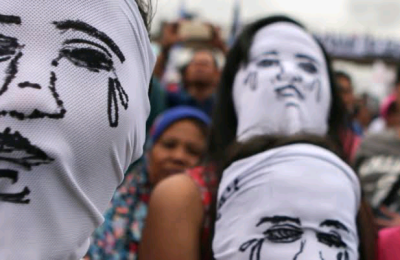

By Violet Agbokhavbolo
GREEN conflicts in Nigeria over environmental resources access, management, control and distribution have exacerbated the imperative for gender equality and women empowerment advocacy. Women and girls as fetchers of wood fuel, are frontliners, increasingly becoming soft targets susceptible to Gender Based Violence (GBV). Gender objectification, weaponisation of rape, forced marriages, kidnapping, livelihood disruption, trafficking and environmental degradation are major components of gender vulnerabilities and exposure, culminating in internal displacement and fractured communities.

Poorly managed Internally Displaced Persons (IDPs) camps are dotted across Nigeria with scant supply of water and necessaries. 2.2 million people, mostly women and children, in the North Eastern states of Yobe, Adamawa and Borno remain displaced (UNICEF, 2022).In the Middle Belt South-South, climate-induced Farmers/Herders conflict over land resources is cyclical and sporadic with scorched villages, population flight, destruction of lives and property, kidnapping for ransom are common. Green conflict-induced reproductive violence can complicate pregnancies, induce abortions, proliferate Sexually Transmitted Diseases, Post-TraumaticStress Disorder (PTSD), malnutrition and drive displacement (Aigbokhaevbo, 2022).
Climate change-induced environmental disability aided by fractured adaptation and mitigation efforts has significantly compounded gender vulnerabilities and exposures. Women as subsistence farmers with limited access to finance and land under most customary laws as well as other patriarchal limitations have been most battered by climate change. The Legal Framework on Gender Protection in Nigeria which is embracive of both domestic and international laws includes Universal Declaration of Human Rights (UDHR, 1949), Convention on the Elimination of All Forms of Discrimination Against Women (CEDAW, 1981), African Charter on Human and People’s Rights (1981), United Nations Declaration on the Elimination of Violence Against Women (1993) and its optional protocol, The Beijing Declaration and Platform for Action, The Convention against Torture and other Cruel, Inhuman or Degrading Treatment or Punishment (CAT), The Trafficking in Persons (Prohibition) Enforcement and Administration Act (2015), Violence Against Persons (Prohibition) Act (2015), Criminal Code Act and Penal Code Act. The Sustainable Development Goals (SDGs) also specifically target gender equality, climate, poverty reduction and environmental justice.
The efficacy of legal and policy intervention in green conflict-induced gender vulnerabilities in Nigeria continues to be plagued by; statutory limitation laws on institution of causes of action, condonation of gender abusive practices, inadequate auditing of post-conflict gender and environmental outcome for accountability purposes, agencies’performance inertia, limited judicial activism, poor victims’enlightenment and insufficient representation of women in gender and environmental decision making processes. Review of green conflict mitigation and adaptation responses and strategies is recommended. Peaceful protests and negotiations, enhanced partnership with non-governmental organisations, religious and private organisations, green conflict avoidance, women empowerment, affirmative action as well as pro bono legal services targeting gender abuse-based causes of action should be encouraged. Instead of lip service, Government should transform its gender policies from rhetorics to reality.

Gender parity and tolerance bolstered by increased girl child education and skill acquisition are key to enhancing gender resilience to green conflict vulnerabilities.Families as primary units of socialisation ought to clearly inculcate in the girl child values and aspirations, to make them less susceptible to victimisation and objectification.
- Professor Agbokhavbolo is a former Dean of Law, University of Benin

READ ALSO FROM NIGERIAN TRIBUNE








